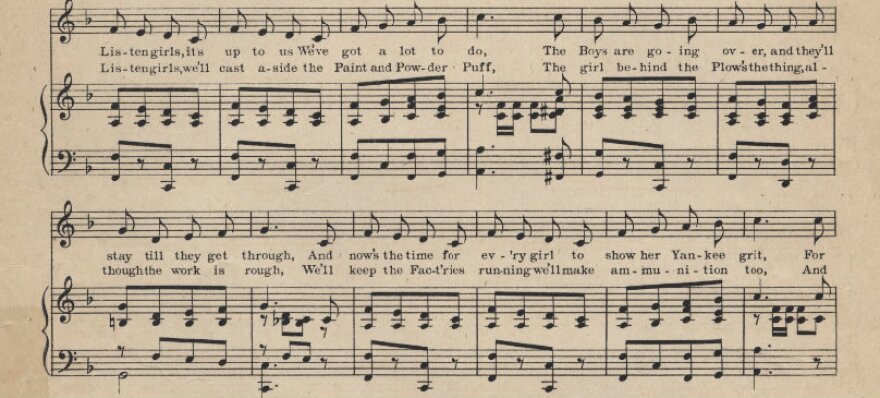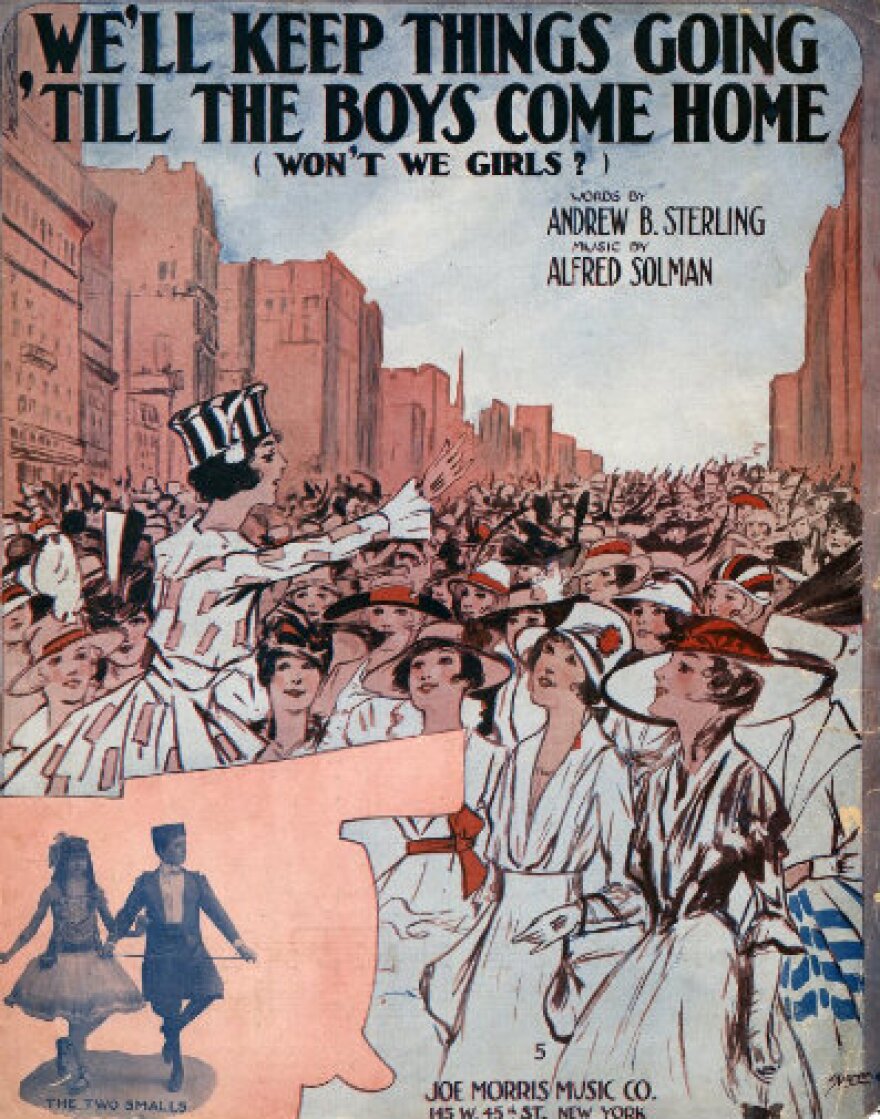UPDATE: Schreiner died in January 2020. Read his full obituary here.
Lee Schreiner of Rockford doesn’t play the piano or sing. He’s a physics teacher with multiple degrees from Northern Illinois University. But his hobby of collecting wartime sheet music has grown over the years.

“I thought maybe I could collect like a hundred sheets," he admits. "Then it was a thousand. Then it was five thousand. It’s amazing and almost unexplored territory because people had not done a lot of research on World War I. I'm trying to understand the history through the music.”
His collection also includes sheet music from several decades, but it all began for a very personal reason.
“Well it started simply because my wife was named for the song Charmaine, which came from a famous anti-war song from a play based on World War I. The more I looked into the history of it, the more interesting it became. I had no idea how far one could go."
In 2014, Schreiner started donating his collection to his alma mater. Librarians at Northern Illinois University are creating an online database for the sheet music.
Lynne Thomas is curator of Rare Books and Special Collections at NIU. This year, the library starting digitizing the World War I sheets because many of the pieces are now a century old—and in the public domain.
“In the same way that now we would get together and watch a television show as a family or with a group of friends, sheet music was designed for people in homes to gather around the piano as a shared activity and to sing these songs and just spend time together, so it is a popular form of entertainment during the period,” Thomas said.
Schreiner is still collecting and takes particular interest in pieces with local ties.
“In the course of collecting the World War I music, I’ve tried to get as many Illinois published and Illinois

composers," Schreiner said. "Particularly because I live in Rockford, I’ve collected about 60 sheets that were published in or by people that were in Rockford. I think it’s really interesting to look at small town Illinois sheet music that was published in a small town that had something they wanted to say."
One of those pieces is called the 3rd Illinois Infantry March.
Matthew Short is a meta librarian with the project.
“There are some about women who took up the role of men as they left for the war," Short said. "Everyone is familiar with 'Rosie the Riveter.' Not everyone realizes there were ‘Rosie the Riveters’ in World War I, as well as World War II.”
One such piece is called We’ll Keep Things Going 'Till The Boys Come Home (Won't We Girls?).

The library can upload about 250 pieces in a week or two. Short said adding tags and descriptions takes the most time, and it’s an expensive process.
“When we prepare a batch for scanning, we first go through and see what the Library of Congress has scanned," Short said. "We select what they haven’t done or variations on what they have done. Sometimes the same piece may have been printed several times, but the cover illustration could change. We still might digitize the whole piece just because it is unique enough to make that available.”
He says it’s been a fascinating process to scan these pieces of musical history—and acknowledges some pieces are definitely of the era.

“We just have to describe the item at hand and can’t really make any judgments about whether it is racist or sexist," Short said. "What we can do is identify the groups that are depicted so we can add access points for African-Americans, women, or Chinese-Americans. What we can’t do is say ‘this is specially a questionable depiction of them.’”
Curator Lynne Thomas said a lot of the art that is on the covers of this sheet music is also replicated in wartime posters that people may already be familiar with.
“The most famous piece of art from this period is the Uncle Sam, 'I Want You' [poster] where he is pointed directly at the audience. That is on the cover of the sheet music, and of course it was used for military propaganda as well so there is a lot of crossover in terms of social history.”
So what’s left to collect? Schreiner says music from this era could pop up anywhere, from garage sales to online auctions.
“Well, at this point, if it’s something that I don’t have, it’s definitely something I want.”
And something he plans to pass along to the masses.
- Musical selections for this story were performed by Northern Public Radio business associate Abi Mogge in WNIJ’s Studio A.





